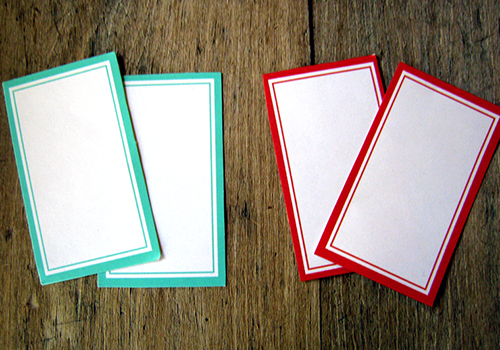How to Avoid the Trap of Labeling Your Story

Tropes and cliches can be hard to avoid, especially when you’re working within specialized genres or categories. Meg Syverud and Jessica ‘Yoko’ Weaver, the creators behind webcomic Daughter of the Lilies, share why labels are unavoidable… and why that isn’t always a bad thing:
When someone asks you to describe your (or any) story to them, the most common answer sounds something like this:
“Halo meets Dragon Age.”
“It’s like if Harry Potter were a hard boiled detective.”
“Imagine if Supersize Me and Wolf of Wall Street were combined into one movie.”
But Mass Effect, The Dresden Files, and The Big Short—each referenced above—are all strong stories with their own individual identities. Why not just say what they are? Why do we need comp titles like this?
I’m going out on a limb to guess that you’ve used this to describe your own story—and granted, it’s the easiest way to give people the immediate gist. But at some point, you have to admit to yourself that your story isn’t exactly like anything that has been written before.
Humans like to organize and categorize things. Something is easier to understand when we give it a label, and stories are not excluded from this. Why is this the case, when stories, at their best, emulate the natural world, which is predisposed to chaos and disorder? Why are we so eager to drop stories into categories of Fantasy, Science Fiction, Coming of Age, or Slice of Life?
“How do you escape from the stigma of writing a paranormal romance?”
More importantly, how do you deal with the prejudice that comes from writing a story that is immediately categorized into one of these genres? How do you escape from the stigma of writing a paranormal romance, or from the assumption that your epic fantasy is based on Dungeons and Dragons?
Here’s the bad news:
You can’t.
But here’s the good news:
It doesn’t matter.
“Make sure what you’re writing has substance; that your message has weight.”
“I don’t believe” writes Brian McDonald in Invisible Ink (which you must read), “that [people] care much about the genre of a story; they just want to be moved in some way.”
In other words, the message trumps the messenger.
It’s why some titles—like The Iron Giant and Toy Story—can be so unexpectedly successful. It’s why some stories stay with you for your entire life: something in it sticks to your ribs, makes you question yourself, or brings new perspective. It doesn’t matter if it included magic, laser guns, lost treasures, or unstoppable viruses—the message it carried was the thing.
Make sure what you’re writing has substance; that your message has weight. Your readers will give your story 1,000 different labels because they will experience it in 1,000 different ways. Ultimately, though, those labels cannot accurately describe the soul of your story, much like how your own soul cannot be completely categorized by labels of gender or personality type.
Write something that needs to be said for the ones who need to hear it. It will make your story (whatever kind of story it is) last in the mind of your reader.

Meg Syverud has been an independent comic creator since 2004. She likes Pokemon, reading, video games, and cross stitching. She has a BFA in Graphic Design and a job as a Storyboard Revisionist. Her pet peeve is when people assume her current webcomic, Daughter of the Lilies, is based on D&D. Because it’s not.

Jessica “Yoko” Weaver has been working in independently published comics since 2010. She hopes and aims to one day work in video games and animations as a conceptual artist and designer. Despite her borderline obsessive love of red pandas, narseakittehs, and fatticorns she’s technically a highly functioning and responsible adult.
Top photo by Flickr user Katey Nicosia.
Chris Baty's Blog
- Chris Baty's profile
- 63 followers



